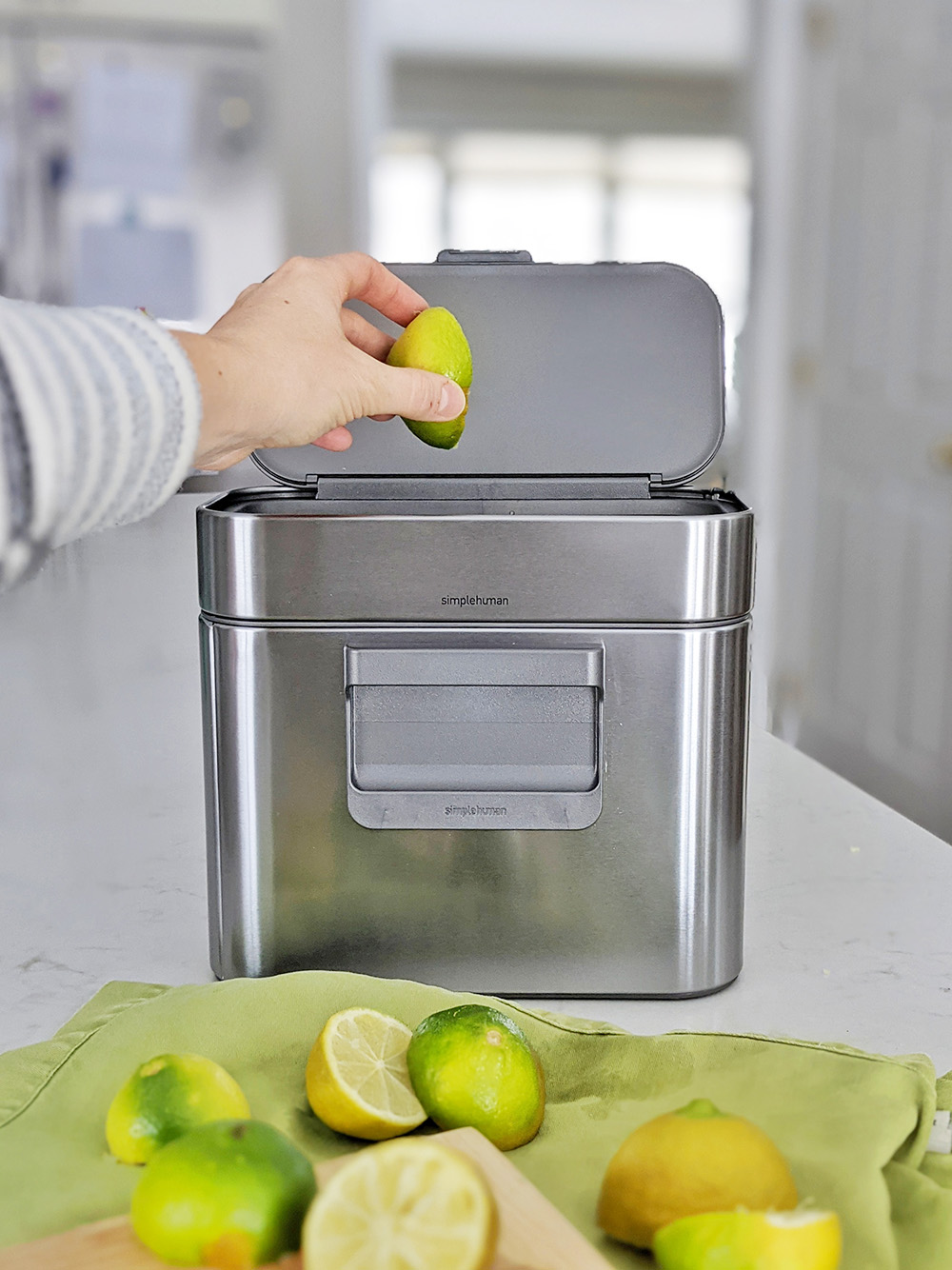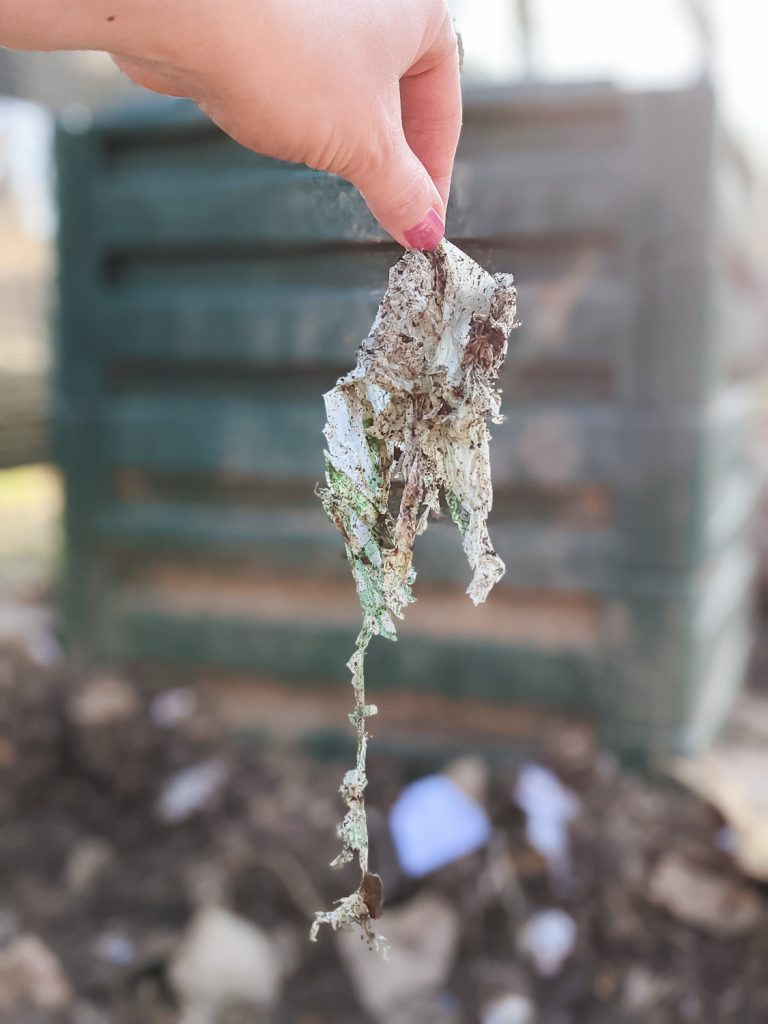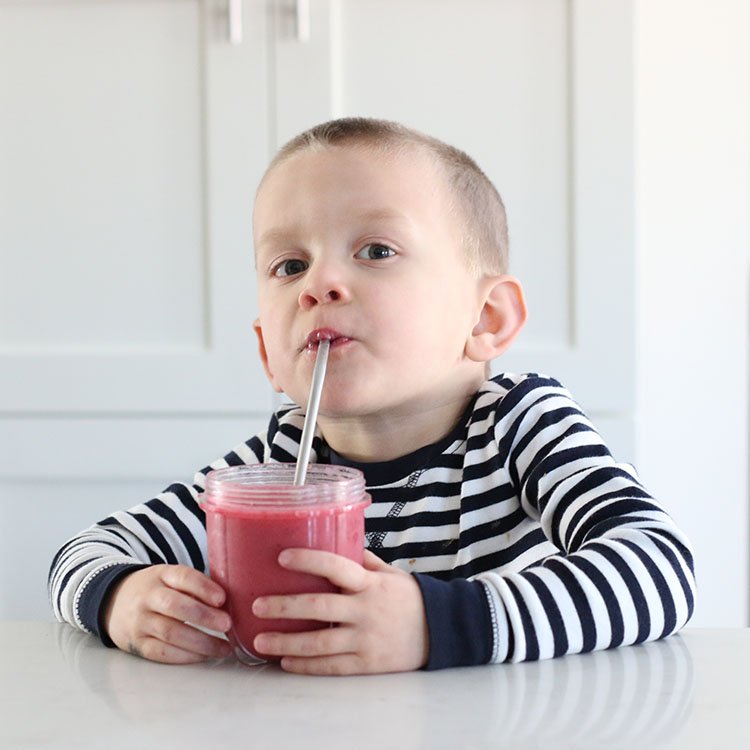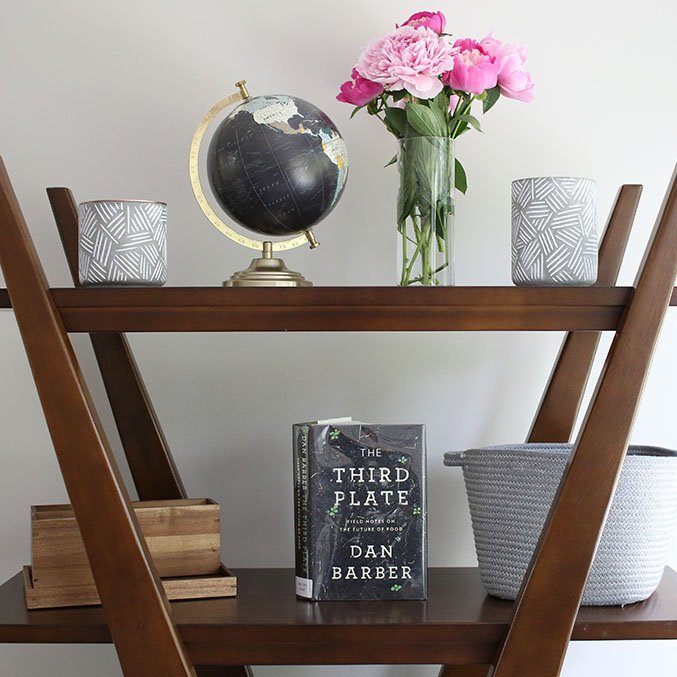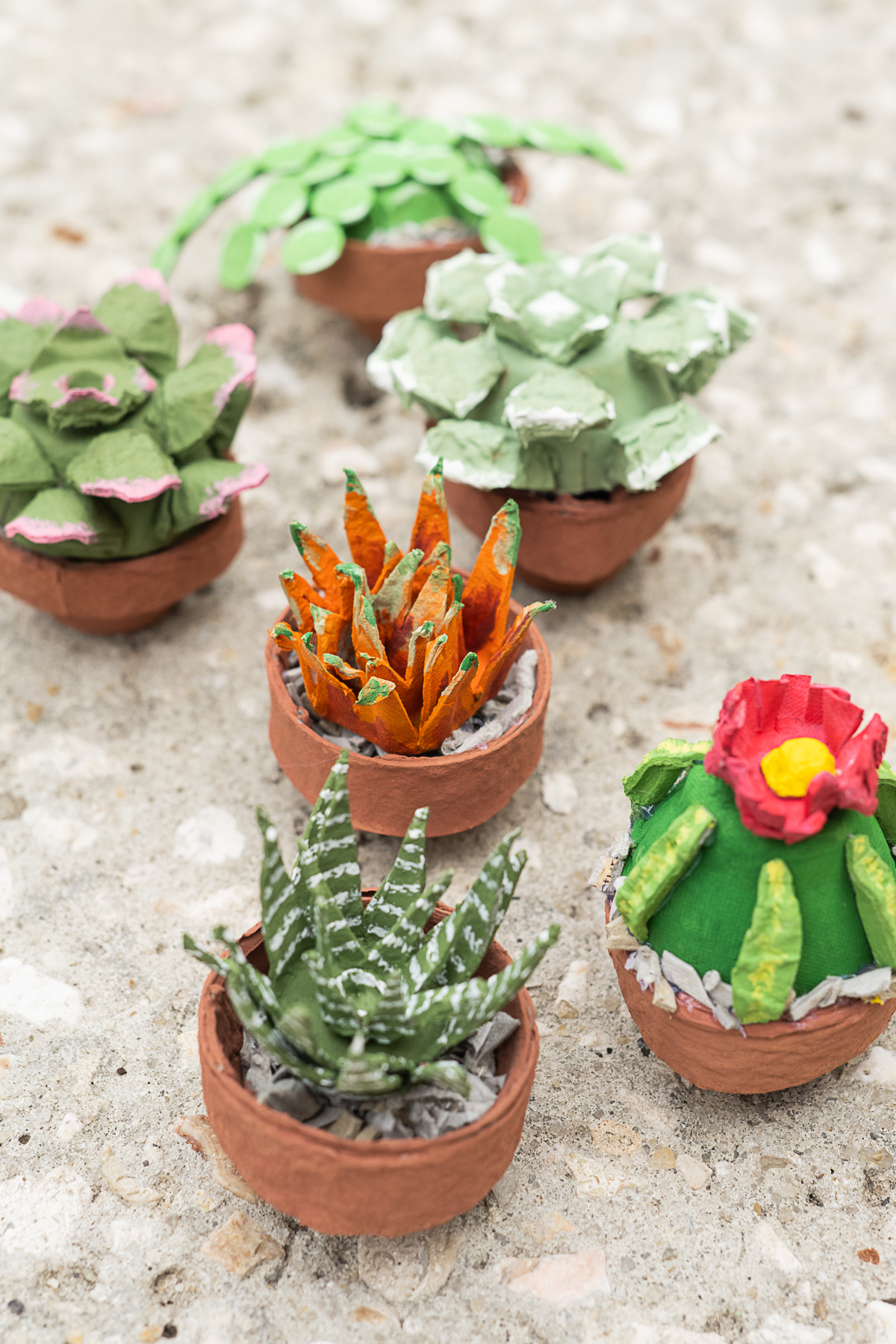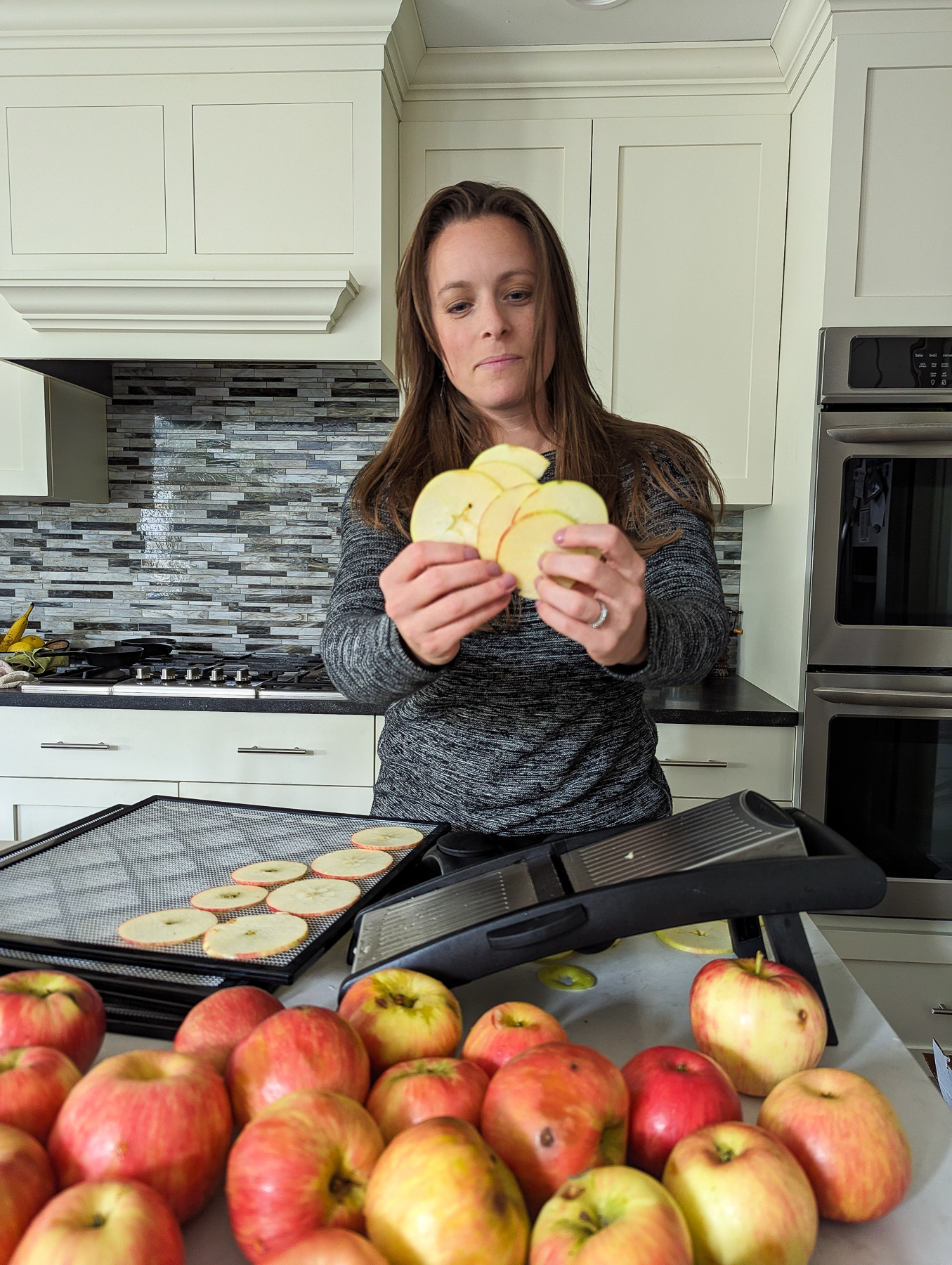How To Compost At Home | Four Piles In The Backyard
Ready to start composting at home with a bit of space for an open pile or bin? This type of composting can be pretty simple and low maintenance if you don’t mind a slow pace of decomposition. Read on for how we compost at home with a few piles in our backyard
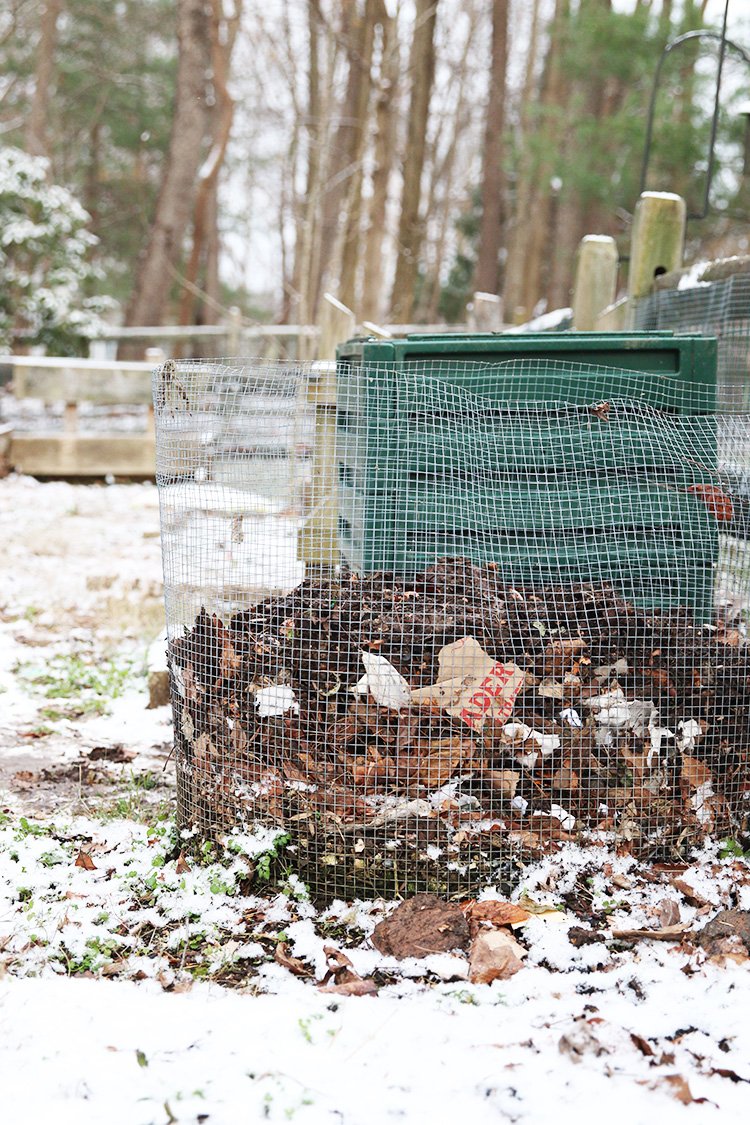
The Compost Chronicles series highlights families in various circumstances who have all found a way to compost at home that works for their lifestyle. Hopefully, you can be inspired to give it a go and help our planet become a little healthier.
Did you know that composting can transform your trash into new life? And that new life, in the form of microbes, fungi, earthworms, and more, provides the foundation for much of all other healthy life on Earth?
Composting is a great way to create healthy soil to support people and our planet. Healthy soil is also a magical carbon sink that absorbs carbon from our atmosphere and helps cool the planet. While dead dirt has few living organisms, a teaspoon of healthy soil has more living organisms in it than the entire population of humans on Planet Earth!
We need everyone to learn how to compost at home and make it a part of everyday life.
Don’t think you can compost? We’ve got a whole set of resources on Everything To Know About How To Compost At Home, including more Compost Chronicles interviews. All of this information about how to compost at home will hopefully prove that just about anyone can make space and find a system to turn their food scraps into nutrient-rich compost to enrich our soil, feed our food cycle, and limit the food waste that ends up in landfills.
Before we started composting, the whole process felt incredibly overwhelming. I had no idea how to start.
How does it work? What do I need to buy? Does it smell? Is it dirty? It’s rotting food after all. What do you do with compost when it’s “ready”? What goes into compost? How much work is it to maintain? I had so many questions. Needless-to-say, I can appreciate the nerves and hesitation that envelop the idea of adding composting to your family’s routine.
Despite some of the books and articles that make composting sound like a heavy-hitting science, composting is really pretty easy if you don’t take it too seriously. Science and ratios and regular maintenance can help material decompose faster and with more precision. But for an everyday family interested in simply curating a pile of rotting garbage that will eventually feed their garden with rich nutrients, composting is a piece of cake.
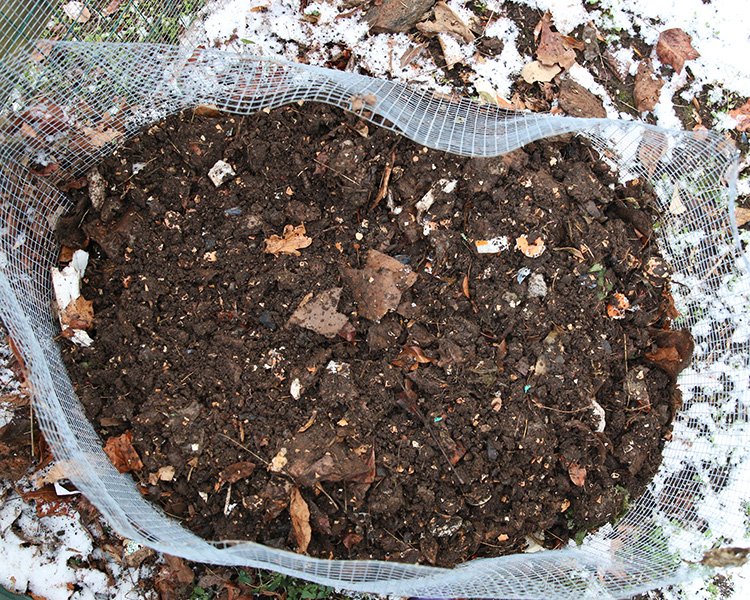
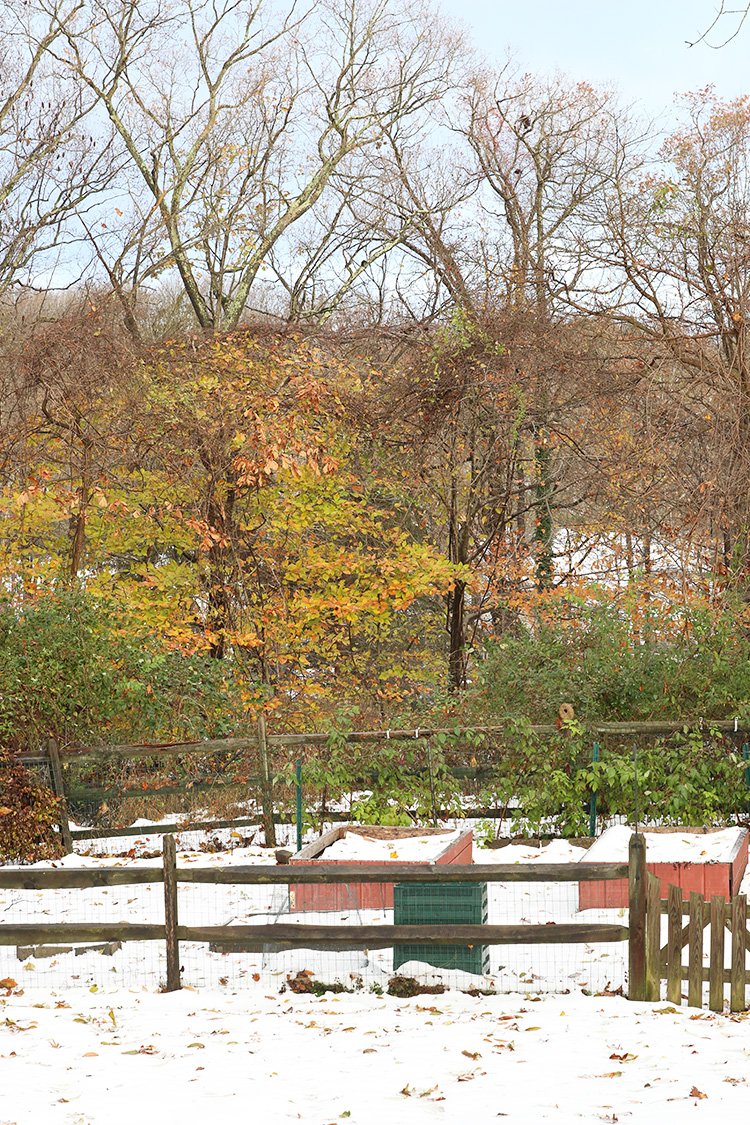
I’ve got plans to create a host of resources over the next several months to help families jump into the composting party. Many resources already exist, so I’ll include references to the ones I like as well. Sometimes though, the best resources are other families doing the same darn thing to show us how it’s done and offer a vote of confidence that we can follow suit.
A year or two ago, I started a series on my blog called Bring Your Trash To Life. I interviewed a variety of families who compost in different ways and in lots of different types of homes to get an idea of what real kitchen composting is all about. I wanted to highlight that composting can look really different depending on the circumstances of your family, and it’s really not that hard for many families.
Throughout the interview series, I never answered these questions for myself. Today it’s my turn to share what composting looks like in our home. Here’s my edition of You Can Make Dirt.
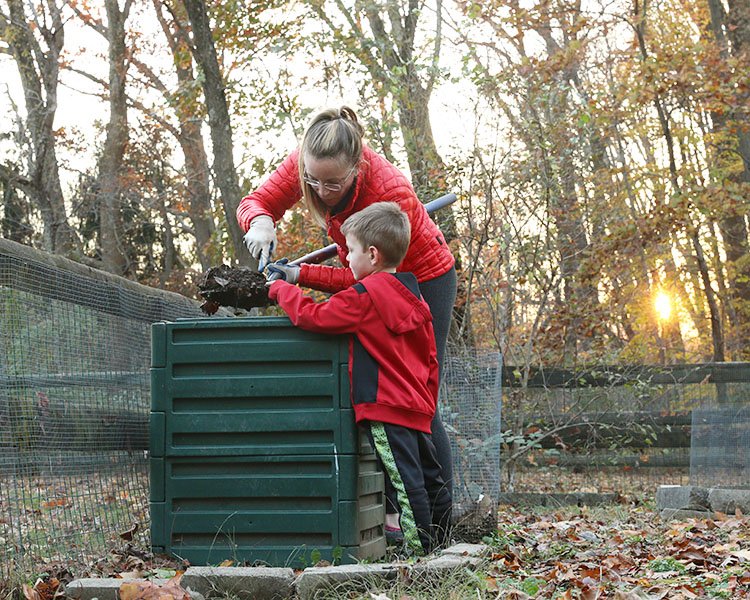
Can you tell us a bit about yourself, where you live, your family, etc.. the Jen 101?
If you’re been reading the blog for a while, you probably know this, but I’ll revisit the 101 anyway. I live outside of Philadelphia in a suburban home with my husband and two boys, both of whom are in elementary school. I work full-time in a corporate job and write my blog on the side. We’re your run of the mill suburban family bouncing from work and school to sports and extracurricular activities, trying our best to keep life simple while also doing all things we love.
Tell us a little bit about why you decided to start composting?
At first, I was intrigued by the environmental benefits, but at the time, we lived in an apartment in downtown Chicago. I wasn’t ready for apartment composting yet (though we had a balcony and I certainly could have composted on the balcony and used the compost for container planting).
We moved into our house in Philadelphia a few years ago and chose the house especially for the yard. Not only did it have a flat front yard and driveway for plenty of sports, but the previous owners left a gorgeous, fenced-in garden with a composting system already set up. It was meant to be.
When we moved in, I started learning more about composting by reading books but also trial and error. After more than three years, it’s one of our family habits, but I’m still learning more and looking to make ever more compost to feed to my garden.
What method or methods of composting do you use or have you used?
We have a backyard compost bin system. To call it a ‘system’ is probably a little generous, but we have three piles near our garden: one in an upcycled, uncovered rain barrel and two piles nearby wrapped in chicken wire. I move the compost between the three piles to turn it occasionally as it decomposes. Each spring, I use the finished compost to spread around our garden before I plant new crops.
We also have a fourth pile in the very back corner of our yard where we put the leaves each fall. Maybe once or twice a year I turn the pile if I’m feeling ambitious and remember to do it. Last fall, I threw two pumpkins from Halloween in the pile and left them to rot.
By the spring each year, the leaves have decomposed into the most wonderful humus, it’s filled with giant worms and healthy little bugs, and I spread it around the garden. This might be the lowest maintenance compost pile known to man, and it makes my garden happier than a kid in a candy store.
Have you had any issues with composting or tried different methods?
We have only used the backyard pile/bin method. It works well for us, though at times the bin needs a little adjustment. Sometimes there are too many food scraps and not enough dry or ‘brown’ ingredients so it starts to smell. I even saw the bin covered in dead maggots once. But that doesn’t make the pile a lost cause. Whenever the compost looks a little too wet or draws flies, I simply add in more brown materials and the pile continues to decompose right back to normal. With a little love, backyard composting is hard to mess up. 🙂
How do you store the scraps until they are taken to your compost pile? Does it cause any smells or issues?
We keep the scraps in this compost crock on our counter. I take them out to the compost bin about once a week. It doesn’t take up much space, and it’s never caused any issues with odors because the top of the crock has a charcoal filter inside of it.
Once or twice during the summer, we got a couple of fruit flies inside the crock (just a handful of them, nothing crazy) but that is really rare. When it happened, we just emptied the crock in the bin outside and the fruit flies vanished.
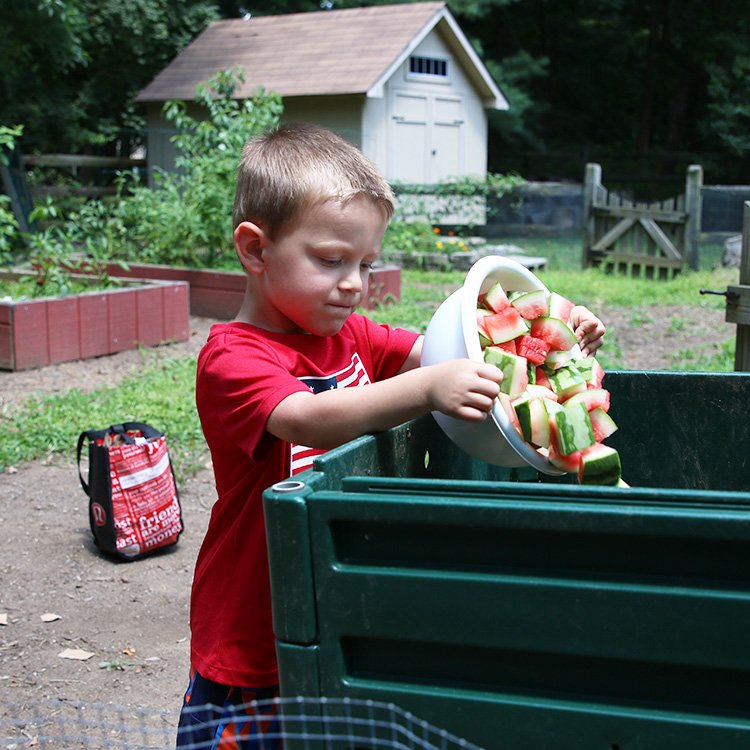
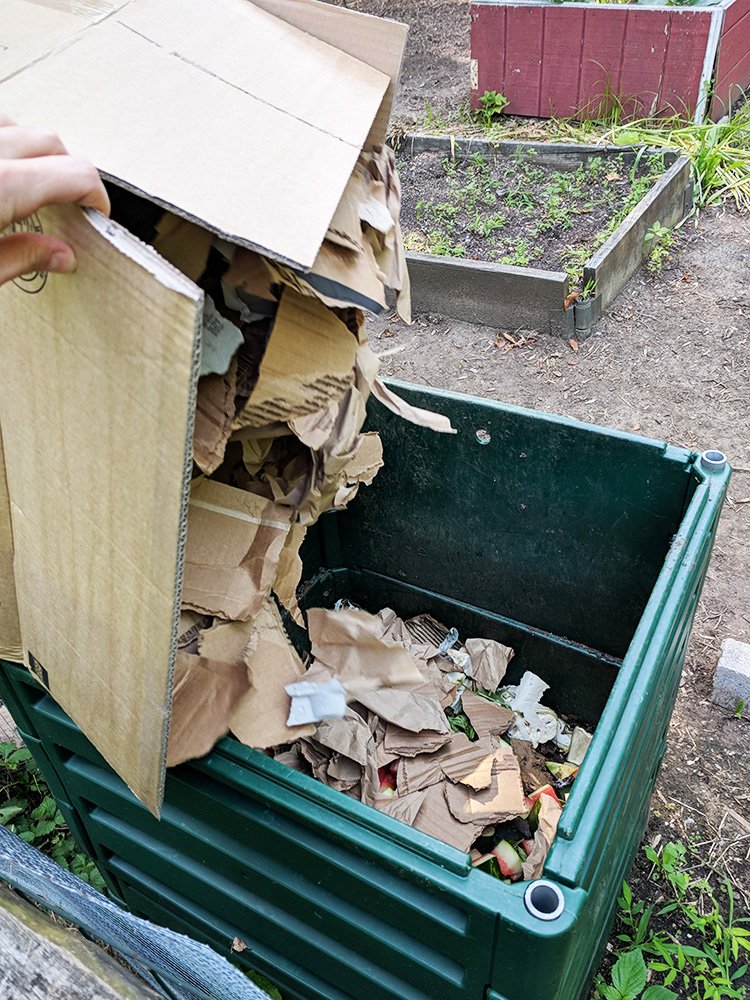
Do you have any special tools, containers, or products that help make composting easier or more accessible for you?
Aside from the crock on our counter, I have a pitchfork to turn the compost. I could also use a shovel, but a pitchfork is a little easier to use. The old rain barrel is a nice container but the chicken wire works well too. Beyond that, no special tools.
What other supplies or materials do you need and where do you store them?
Cardboard is the main “brown” material in our compost bin, particularly during the winter when there are not a lot of outdoor ‘brown’ materials like dead leaves to add to the pile. I keep cardboard, newspaper and paper scraps in a corner in our kitchen. I rip them up here and there when I have time, store them in a bag in the corner, and bring them out to the compost when I have a minute to spare.
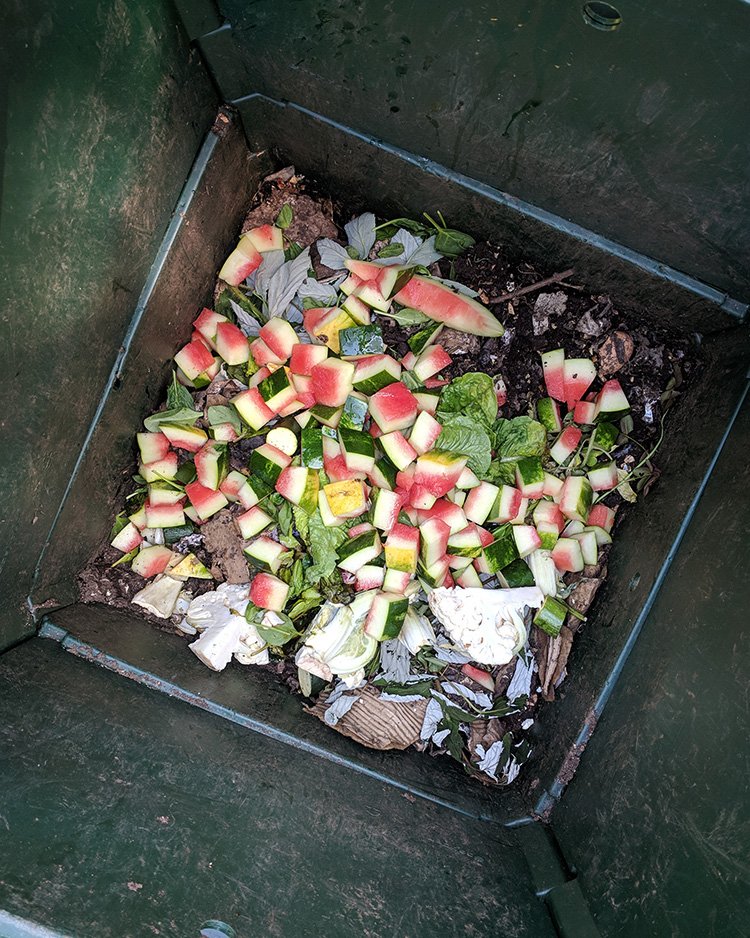
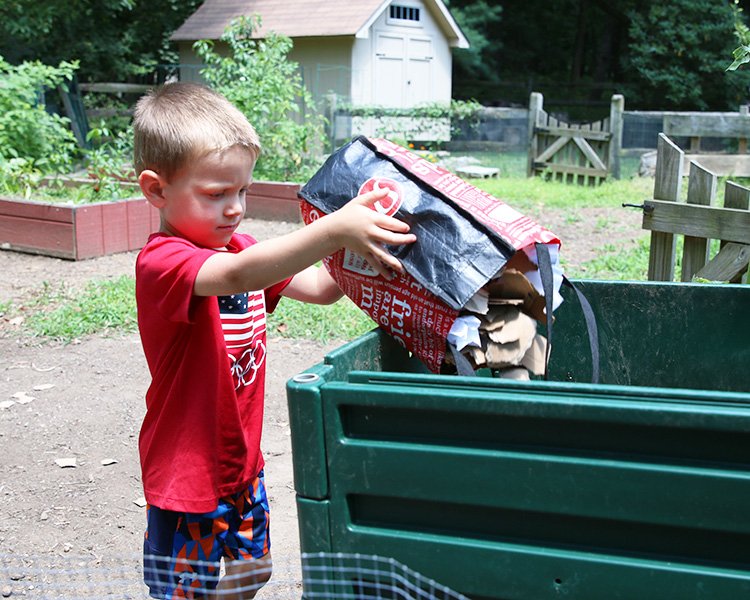
How does your family feel about composting? Do they participate?
My boys are young enough that they really don’t know any different and it doesn’t impact them. Most importantly, they’ve grown up believing that to compost is a normal part of life in a home.
My husband is indifferent toward it. I didn’t push it hard when I first started composting. I do most of the cooking so I end up putting most scraps into the countertop crock. Over time, I taught him which things belonged in the compost bin and which didn’t. Now, it’s no big deal and he puts his banana peels or avocado skins in the compost bin.
I do all the outdoor management, turning the pile and deciding what to do with the compost, but I don’t mind at all. The garden is “my space” anyway, so it makes sense.
Have you experienced any benefits from composting, especially ones that might have surprised you?
Composting significantly reduces the amount of trash we generate and the frequency with which we have to empty the trash cans. The trash goes many days without smelling, so we can typically empty the trash one to times per week, at most.
I also really love watching the garbage turn into treasure for our garden. I especially enjoy turning the compost and seeing the plethora of life eating away organic materials. I never loved worms but now they make me smile.
Anything else you’d like to share with readers about your composting practices?
Composting is really not hard as long as you don’t take it too seriously and aren’t in a rush to create humus, the nutrient-rich byproduct of composting that makes soil so healthy. It’s easy to create a pile in a corner of your yard and let it all rot. If you want to keep your pile a bit tidier, chicken wire is an inexpensive way to do that. As long as you turn the pile once every few weeks (or layer it properly) and cover food scraps with dirt or ‘browns’ when you add the food scraps to your pile, the pile won’t attract pests or smell bad.
If you’re interested in composting, just do it! It’s so great for the soil, helps reduce greenhouse gases in our environment, and is a wonderful way to connect with nature. I promise you’ll love it!

